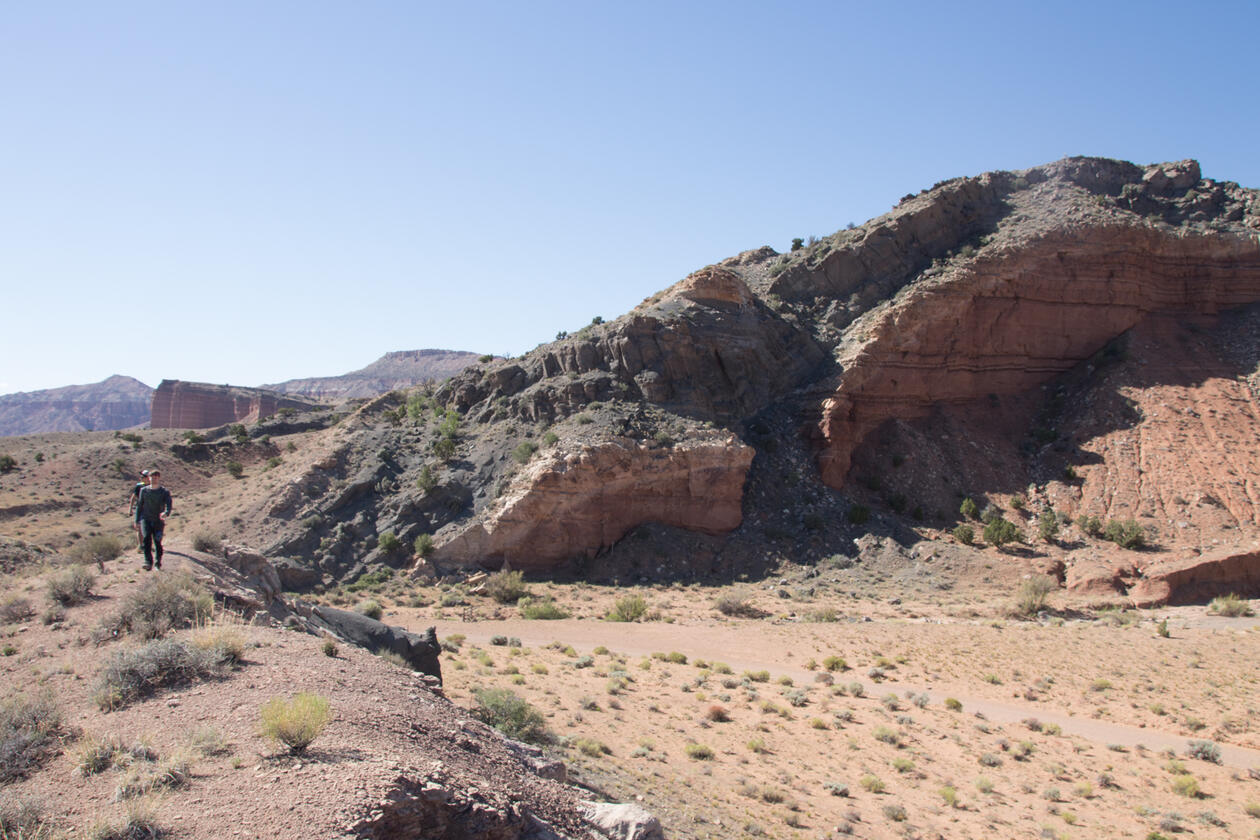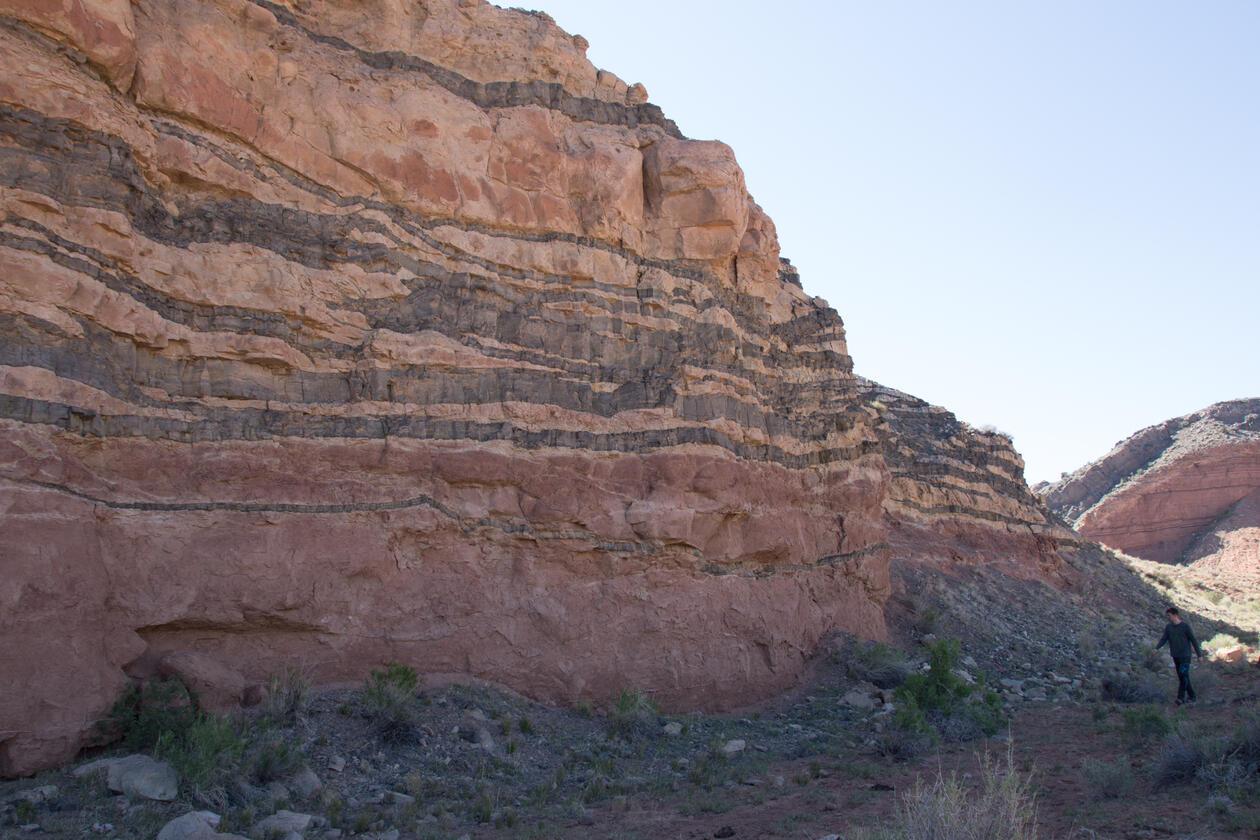Emplacement of "tangled" mafic sills in the Entrada Sandstone, Utah, USA
Dette er masterprosjektet til Seline Bruun Berg, student ved geovitenskap, UiB, i perioden 2021-2023.
Main content
Project description
Mafic sill intrusions commonly occur as layer-parallel conduits of magma within sedimentary basins. Recent work has shown that the emplacement of such sills is strongly controlled by host-rock lithology, in particular by weak mudstone layers and structural discontinuities. In Cathedral Valley in central Utah, sills that are emplaced within the relatively homogeneous silty sandstones of the Entrada formation show < 1 m thin offshoots ("splays") that have a peculiar tangled geometry not described before. To understand this geometry and why it forms, it is important to understand the variability in the host-rock, and whether architecture of the sill was controlled by sedimentary heterogeneity, structural discontinuities or a combination of these. Furthermore, the interaction between the sill and the host-rock in terms of emplacement processes and contact metamorphism is also a key objective. These goals will be achieved by detailed investigations of the outcrop in virtual outcrop models, detailed sedimentological analysis, and limited thin section analysis of samples from the outcrop.
Proposed course plan during the master's degree (60 ECTS):
GEOV210 – Platetektonikk (10p)
GEOV242 - Magmatisk og metamorf petrologi (10p)
GEOV 261 – Bassenganalyse og tolkning av undergrunnsdata (10p)
GEOV272 - Seismisk tolkning (10p)
GEOV345 - Regionalgeologisk feltkurs til Vestlandet (5p)
GEOV352 - Utah Feltkurs (5p)
GEOV360 - Videregående klastisk sedimentologi (10p)
GEOV364 – Videregående bassenganalyse (5p)
Field, lab- and analysis
Virtual outcrop models
Sedimentological field work
Thin sections

